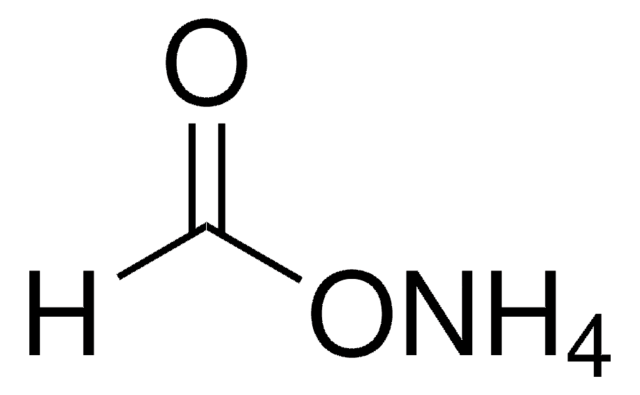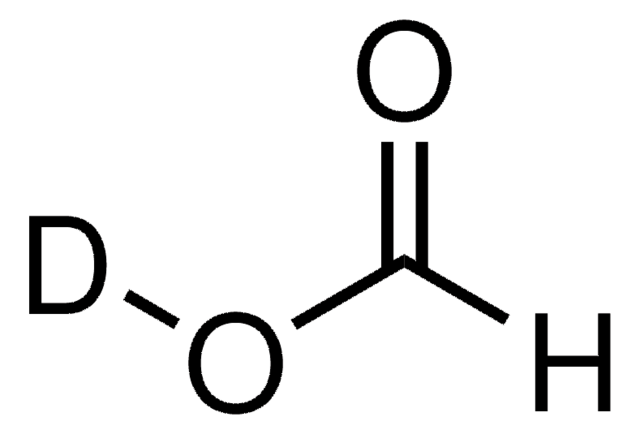06473
Formic acid
BioUltra, 1.0 M in H2O
Synonym(s):
Methanoic acid
About This Item
Recommended Products
product name
Formic acid solution, BioUltra, 1.0 M in H2O
product line
BioUltra
Quality Level
form
liquid
concentration
1.0 M in H2O
impurities
insoluble matter, passes filter test
refractive index
n20/D 1.336
pH
1.0-2.5 (25 °C)
cation traces
Al: ≤1 mg/kg
Ba: ≤1 mg/kg
Bi: ≤1 mg/kg
Ca: ≤5 mg/kg
Cd: ≤1 mg/kg
Co: ≤1 mg/kg
Cr: ≤1 mg/kg
Cu: ≤1 mg/kg
Fe: ≤1 mg/kg
K: ≤20 mg/kg
Li: ≤1 mg/kg
Mg: ≤1 mg/kg
Mn: ≤1 mg/kg
Mo: ≤1 mg/kg
Na: ≤20 mg/kg
Ni: ≤1 mg/kg
Pb: ≤1 mg/kg
Sr: ≤1 mg/kg
Zn: ≤1 mg/kg
λ
neat
UV absorption
λ: 260 nm Amax: 0.03
λ: 280 nm Amax: 0.01
SMILES string
[H]C(O)=O
InChI
1S/CH2O2/c2-1-3/h1H,(H,2,3)
InChI key
BDAGIHXWWSANSR-UHFFFAOYSA-N
Looking for similar products? Visit Product Comparison Guide
Application
Signal Word
Warning
Hazard Statements
Precautionary Statements
Hazard Classifications
Eye Irrit. 2 - Skin Irrit. 2
Storage Class Code
12 - Non Combustible Liquids
WGK
WGK 1
Flash Point(F)
Not applicable
Flash Point(C)
Not applicable
Personal Protective Equipment
Choose from one of the most recent versions:
Already Own This Product?
Find documentation for the products that you have recently purchased in the Document Library.
Customers Also Viewed
Our team of scientists has experience in all areas of research including Life Science, Material Science, Chemical Synthesis, Chromatography, Analytical and many others.
Contact Technical Service




